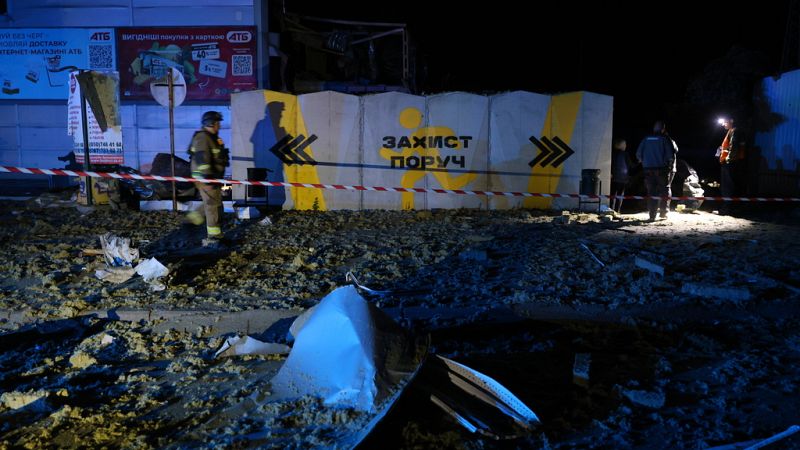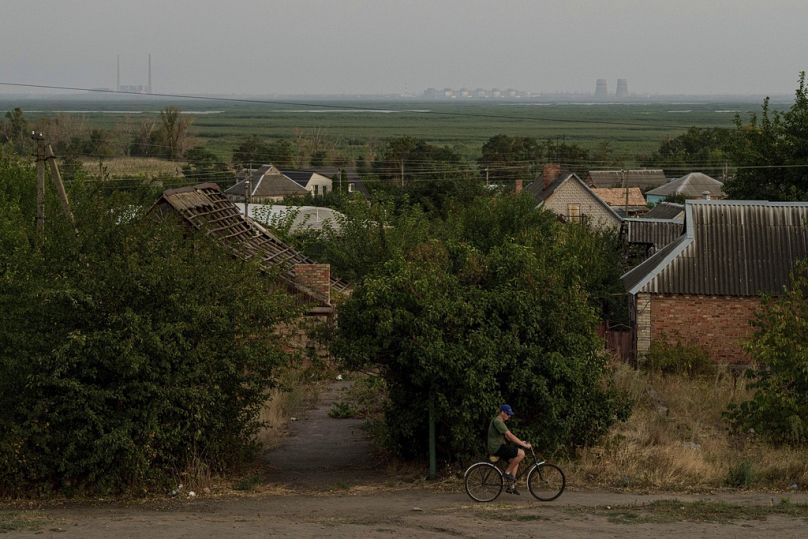Thousands left without power in Zaporizhzhia as Russian drone attacks cause damage

Russian attacks in Zaporizhzhia on Saturday left around 9,000 households without electricity, though by morning, energy crews had managed to restore almost all power, local officials in the Ukrainian city said.
According to the Zaporizhzhia Regional Military Administration, a store, ten retail outlets, two apartment buildings, and several non-residential premises were damaged in the drone attacks.
A site near the bus station, which had already been hit on 10 August by guided bombs was also affected. Nearly 80% of the building was destroyed at the time.
Its windows were boarded up with OSB sheets, on which a local artist had painted a mural. After the latest nighttime strike, the artwork was also damaged.
On Saturday morning, employees at one of the hardest-hit sites near the bus station were carrying out dozens of boxes with food, drinks, and other goods.
Some reported that a Russian Shahed drone struck the building overnnight, when staff were conducting inventory.
One of the employees, Volodymyr, said that after hearing the first explosion, they ran to a modular shelter, claiming that this quick reaction saved their lives.
Nearby, kiosk worker Hanna was clearing broken glass and twisted metal. She noted that this neighbourhood had already been shelled once before.
Fourth day of blackout at Zaporizhia nuclear plant
Saturday's attacks came as Ukraine's Zaporizhzhia nuclear plant has been off-grid for four consecutive days, its longest blackout to date.
Blackouts at the plant have been frequent since Russia seized the Zaporizhzhia plant in 2022, due to its proximity to the front line, but experts are warning that the current blackout heightens the risk of a malfunction.
The Zaporizhzhia nuclear power plant in the middle of the fighting in Ukraine was temporarily knocked offline Thursday because of fire damage to a transmission line, causing a blackout across the region and heightening fears of a catastrophe in a country still haunted by the Chernobyl disaster.
The complex, Europe’s largest nuclear plant, has been occupied by Russian forces and run by Ukrainian workers since the early days of the 6-month-old war.
Ukraine alleges Russia is essentially holding the plant hostage, storing weapons there, and launching attacks from around it, while Moscow accuses Ukraine of recklessly firing on the facility.
The plant's emergency backup diesel generators had to be turned on in order to provide the electricity required to operate the plant, according to Ukrainian President Volodymyr Zelenskyy, who blamed Russia's relentless attacks.
Today


